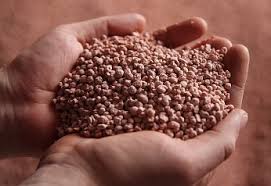
8月 . 21, 2024 18:53 Back to list
Nutritional Benefits of Diammonium Phosphate in Yeast Cultivation and Fermentation Processes
The Role of Diammonium Phosphate as Yeast Nutrient
Diammonium phosphate (DAP) is a widely used compound in various industrial and agricultural applications, primarily as a fertilizer and a yeast nutrient. It plays a crucial role in fermentation processes, particularly in the production of beer, wine, and various fermented foods. The significance of DAP as a yeast nutrient hinges on its ability to provide essential nitrogen, which is vital for yeast growth, metabolism, and overall fermentation efficiency.
Chemical Composition and Properties
Diammonium phosphate is an inorganic salt with the chemical formula (NH4)2HPO4. It is highly soluble in water, making it easy to incorporate into fermentation media. As a source of nitrogen, it supplies two ammonium ions (NH4+) for every molecule, which are directly utilized by yeast cells during their growth phase. This nutrient is particularly valuable in fermentation processes where natural nitrogen sources may be limited or insufficient, such as in certain grape musts or malt extracts that may lack adequate nutrient profiles.
Importance in Fermentation
Yeast, particularly Saccharomyces cerevisiae, requires nitrogen not only for protein synthesis but also for other critical cellular functions. Nitrogen is a key component of amino acids, nucleic acids, and enzymes. When yeast is nutrient-deficient, fermentation can become sluggish or even stall. The addition of DAP can help mitigate these issues, ensuring healthy yeast growth and fermentation activity.
In the brewing and winemaking industries, DAP is often added during the fermentation stage to prevent problems associated with low nitrogen levels. Insufficient nitrogen can lead to off-flavors, reduced alcohol yields, and longer fermentation times. By supplementing the fermentation medium with DAP, producers can achieve a more consistent and reliable fermentation process.
Usage Guidelines
diammonium phosphate yeast nutrient

When using DAP as a yeast nutrient, it is important to consider the correct dosage. Although it is effective in improving fermentation, excessive use can lead to an imbalance in the nutrient profile, potentially resulting in negative impacts on yeast performance and the final product quality. Generally, the amount of DAP added varies depending on the specific fermentation conditions and the characteristics of the base substrate. A range of 0.1% to 0.5% is often recommended, but producers should conduct trials to determine the optimal levels for their specific applications.
Balancing Nutrients
While DAP provides nitrogen, it is not a complete nutrient source for yeast. Yeast also requires other vitamins and minerals for optimal performance, including zinc, magnesium, and B vitamins. Therefore, it is often advisable to use DAP in conjunction with other yeast nutrients or complex nutrient blends. This holistic approach helps maintain a balanced nutrient profile, promoting robust fermentation and high-quality final products.
Environmental Considerations
The use of DAP is not without scrutiny. Concerns about its environmental impact, particularly its potential contribution to nutrient runoff and water pollution, have led some producers to seek more sustainable alternatives. Organic or naturally derived yeast nutrients are becoming increasingly popular, although they may not always provide the immediate benefits of synthetic nutrients like DAP. Thus, producers must weigh the benefits of using DAP against environmental considerations and explore all available options to enhance their fermentation processes sustainably.
Conclusion
Diammonium phosphate is a vital yeast nutrient that plays a significant role in optimizing fermentation processes across various industries. Its ability to supply essential nitrogen supports yeast growth and enhances fermentation efficiency. However, careful consideration must be given to its application and dosage, ensuring that a balanced nutrient environment is maintained. As industries evolve towards more sustainable practices, DAP's role may be re-evaluated, but its importance in fermentation remains undeniable.
-
10 10 10 Fertilizer Organic—Balanced NPK for All Plants
NewsJul.30,2025
-
Premium 10 10 10 Fertilizer Organic for Balanced Plant Growth
NewsJul.29,2025
-
Premium 10 10 10 Fertilizer Organic for Balanced Plant Growth
NewsJul.29,2025
-
Premium 10 10 10 Fertilizer Organic for Balanced Plant Growth
NewsJul.29,2025
-
50 Pound Bags of 13-13-13 Fertilizer for All Plants – Bulk & Organic Options
NewsJul.28,2025
-
High-Efficiency 15-30-15 Granular Fertilizer for Healthy Crops
NewsJul.28,2025
